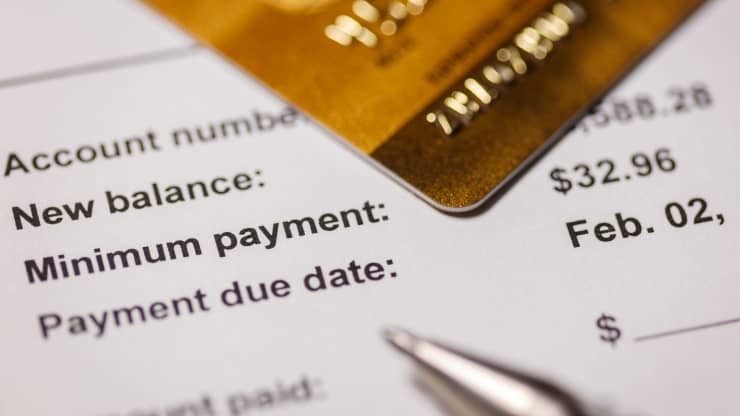The Real Cost of Paying Only Minimum Payments on Credit Cards
Without providing an actual number, many of our clients have one thing in common when they come to Beyond Finance – they’re only making minimum payments on their credit cards. It’s not a source of blame or accusation, just a fact in the debt journey where they find themselves.
It’s what they can do. People burdened by debt want to do the right thing and pay what they owe. The one enormous problem is they are unable to do so. There is only so much money in a bank account, and what’s a responsible person to do? Pay $30 on a $5,000 credit card or get groceries for the children? If you have ever been in that person’s situation, you’d understand why that’s not such an easy decision.
The problem with that scenario is that while it may save a few dollars in the short term, it’s not a long-term solution. Also, that approach of only a minimum payments schedule can cause late fees to accrue, which can be atrocious, but no one can keep that up forever.
How Much Minimum Payments Cost?

The average credit card debt of U.S. families is $6,270. The interest rate averages out to 16.61%, although some cards carry an annual percentage rate (APR) of 21.21%.
You work hard, so you think paying $100 each month on that $5,000 will keep you out of trouble. The problem with that thinking is the finance charges total out at $7,282.74 over 48 months. And if no added charges are made and you maintain the $100 payment, you will pay $12,282.74 to crawl out from under that one card.
How’s paying off that “cash car” for your graduating high schooler for the next 10 years sound? Not good. Admit it: If that car had a sticker price of $12,282.74, you may not have ever bought it. You were looking for a $5,000 car, but you charged it because you didn’t have that amount in savings. And so, next stop? Minimum payments.
You’re not alone. Consumers can find themselves in a downward spiral of debt, especially when they have multiple cards using that same strategy. Yet, the result may be the same – pay twice as much or more for purchases with interest, APR and random late fees.
Learning What Else You Pay

Have you been going about your day when tragedy strikes unexpectedly? The car broke down, a medical issue that insurance didn’t entirely cover, or the boss called and had to relieve you from your job. Even worse, you could have been hit with one of those harrowing situations one after the other. Countless people have experienced this in life, and few have walked unscathed by the debt caused in its wake.
Life happens. And when it does, it is impolite and unforgiving. Because of life’s unexpected turns for the worse, debt is usually a result. If you have statements that you can only pay the minimum month-over-month, that may be signs of a more significant issue.
- Are you spending more than you earn?
- Are you able to put any in savings without taking it out later?
- Do you spend money impulsively to erase a bad mood?
- Did you get into debt quicker than you can plan a way out of it?
Whatever happened, don’t judge yourself and allow yourself some grace. Find someone you can ask for advice and receive counsel. And know the questions to ask. Taking this on by yourself creates more stress than you realize. What doctors call “Acute Financial Stress” is real and can manifest itself emotionally and physically. Discovering what can be done about this mounting debt could help you breathe easier and think clearer.
Reach out to a financial planner, blogs about managing debt, or even an attorney about your options. A few solutions fall under the umbrella of debt consolidation. These are real options that can remove a burden of debt from your shoulders and your mind.
Whatever you choose to do, do it now and not later. You’re not alone, but life can happen positively too – if you let it.
